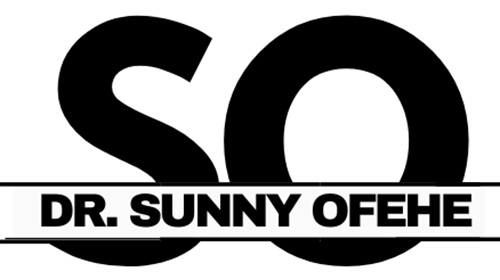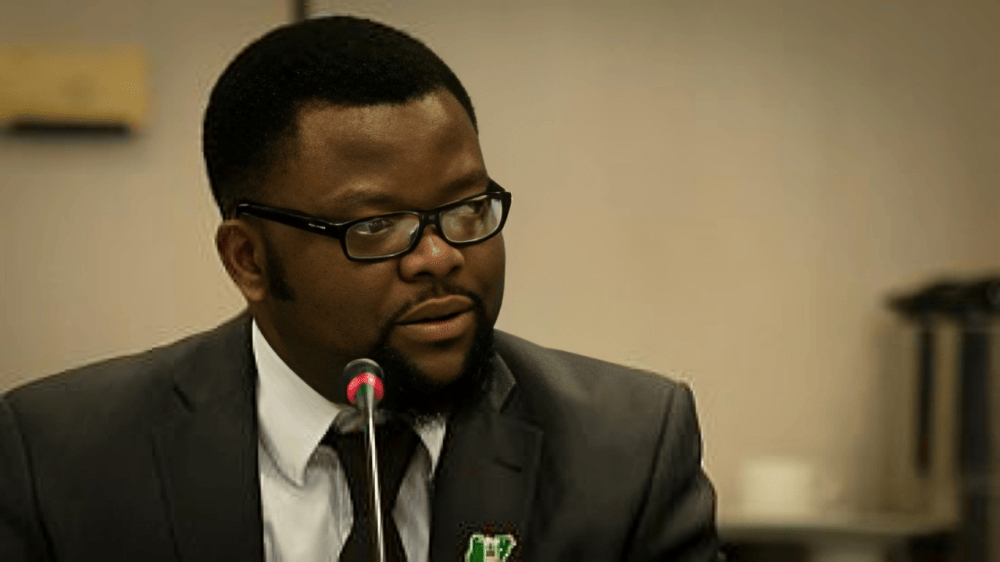A Landmark Moment for Environmental Advocacy and International Dialogue.
Introduction
Sunny Ofehe, a name synonymous with environmental activism and advocacy for the Niger Delta region, made history by addressing the Dutch parliament. This notable event stands as a testament to the growing importance of transnational dialogue and the impact of persistent activism on issues of global concern, particularly environmental justice and human rights. In this document, we explore the context, content, and broader implications of Sunny Ofehe’s address, delving into the significance of his message, the reactions it evoked, and the lasting legacy it is poised to leave.
Background: Sunny Ofehe and His Advocacy
Sunny Ofehe, born in the heart of the Niger Delta in Nigeria, has long been an indefatigable advocate for the region’s beleaguered inhabitants. The Niger Delta, an area rich in oil reserves, has suffered immensely from decades of environmental degradation due to oil exploration, gas flaring, and pipeline spills. These environmental disasters have not only devastated the land and water but have also led to profound social and economic hardships for local communities.
Ofehe’s activism began in earnest in the late 1990s, following the execution of Ken Saro-Wiwa and other activists, which served as a rallying point for those fighting for environmental and social justice. Relocating to the Netherlands, Ofehe founded the Hope for the Niger Delta Campaign (HNDC), an organization dedicated to raising international awareness about the plight of the Niger Delta people and seeking justice for the environmental damage inflicted by multinational oil companies, many of which are based in Europe.
His work has included organizing protests, engaging with European lawmakers, facilitating fact-finding missions, and building bridges between the affected communities and international institutions. Through these efforts, Ofehe became a recognized voice not only for the Niger Delta but also for the broader movement of environmental rights defenders worldwide.
The Dutch Parliament: Setting the Stage
The Netherlands, as the headquarters for several major oil companies and as a country deeply invested in environmental issues, occupies a unique position in the discourse on the Niger Delta crisis. The Dutch parliament, renowned for its openness to civil society and international voices, provided an apt platform for Ofehe to shed light on the realities facing his homeland.
The invitation for Ofehe to address the parliament was the culmination of years of advocacy and lobbying, supported by both Dutch and international NGOs, and reflects a growing recognition in Europe of the interconnectedness of environmental and human rights concerns. Members of Parliament (MPs) from various parties attended the session, highlighting the cross-party interest and the seriousness with which the issue was being treated.
Ofehe’s Address: Content and Message
In his address, Ofehe painted a vivid portrait of life in the Niger Delta, detailing the daily struggles of communities grappling with polluted rivers, infertile farmlands, and compromised health. He drew upon personal stories and testimonies from those directly affected, juxtaposing these with data on pollution, health impacts, and socio-economic consequences.
A central theme of his speech was accountability. Ofehe called upon the Dutch parliament to recognize the complicity and responsibility of European-based oil companies in the Niger Delta’s plight. He urged Dutch lawmakers to enact and enforce legislation that would hold these corporations accountable for environmental and human rights abuses abroad, emphasizing the need for transparency, effective regulation, and avenues for redress for affected populations.
Ofehe also advocated for greater solidarity between European nations and African communities, highlighting the moral and legal obligations of former colonial powers to address the legacies of exploitation. He underscored the potential for positive change through collaborative efforts, including sustainable development initiatives, technical assistance, and capacity-building programs aimed at environmental restoration.
Additionally, Ofehe addressed the importance of youth engagement and education, calling for international scholarships, partnerships, and exchanges that would empower young people from the Niger Delta to become leaders in environmental science, policy, and activism.
Reactions from Parliament and Civil Society
Ofehe’s address was met with a mixture of admiration, empathy, and resolve. MPs acknowledged the gravity of the issues presented, with several voicing support for stronger regulatory frameworks and the need for more robust oversight of Dutch multinationals operating abroad. Some lawmakers raised questions regarding the mechanisms by which affected communities could seek justice in Dutch courts, referencing ongoing litigation against oil companies for environmental damage in Nigeria.
Representatives from civil society organizations echoed Ofehe’s call for accountability and urged parliament to move beyond statements of solidarity to concrete legislative action. There was a palpable sense of momentum, as grassroots groups and NGOs saw in Ofehe’s address a validation of their longstanding campaigns.
Media coverage of the event amplified the message, with major Dutch newspapers and international outlets reporting on the session. Editorials praised the parliament’s willingness to listen to external voices and highlighted the growing demand among Dutch citizens for ethical corporate conduct abroad.
Broader Implications and Legacy
Ofehe’s address to the Dutch parliament is significant on multiple fronts. First, it exemplifies the power of diaspora activism and the ways in which individuals can bridge continents to effect change. By speaking directly to lawmakers in Europe, Ofehe bypassed traditional diplomatic channels and engaged in a form of “people’s diplomacy,” raising the profile of environmental justice as a core human rights issue.
Second, his address reinforced the concept of corporate social responsibility as a matter not only of ethics but of legal obligation. The Dutch parliament, and by extension the European Union, is increasingly attentive to the impacts of European businesses abroad. Ofehe’s testimony contributed to the ongoing debate over supply chain due diligence laws and the extent to which multinationals should be held liable for their overseas operations.
Third, the event spotlighted the role of civil society in shaping policy. Ofehe’s work is a reminder that persistent advocacy—through protests, petitions, reports, and direct engagement—can open doors and create opportunities for transformative dialogue.
Finally, the address has inspired a new generation of activists, both in Nigeria and within the Nigerian diaspora. By sharing his journey and the stories of those in the Niger Delta, Ofehe reminded listeners that activism requires courage, resilience, and a willingness to confront powerful interests.
Conclusion
Sunny Ofehe’s address to the Dutch parliament marks a watershed moment in the ongoing struggle for environmental justice in the Niger Delta. It is a testament to the importance of international solidarity, the effectiveness of advocacy, and the growing recognition of environmental issues as fundamental human rights concerns. As lawmakers in the Netherlands and beyond consider the implications of his message, the hope is that concrete actions will follow—offering redress to those harmed, preventing further destruction, and forging a path toward sustainable development for all. In the end, Ofehe’s words echo across borders, challenging us all to recognize our shared responsibility for the planet and its people.

